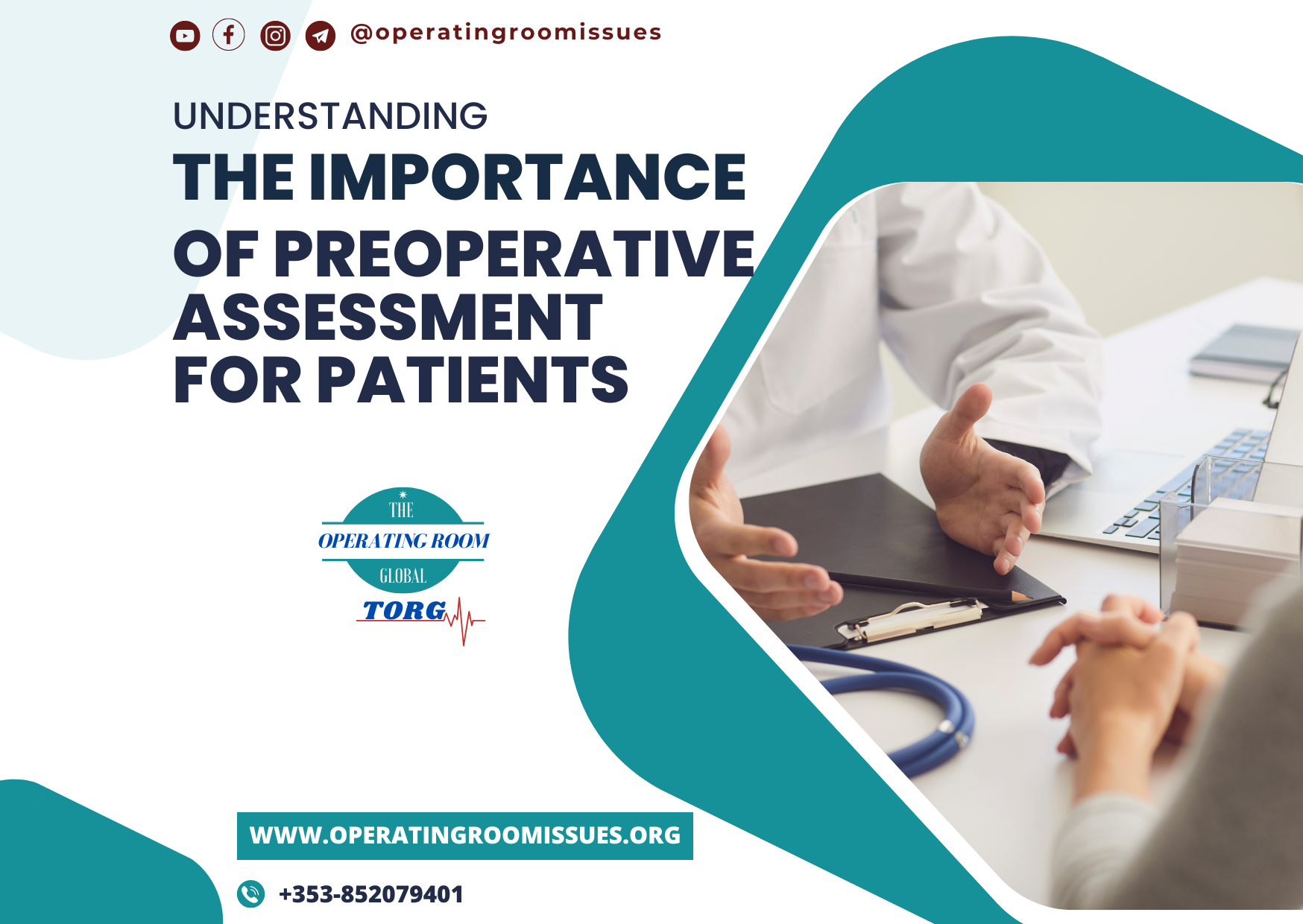By Adebusola Owokole (TORG Founder/President)
Undergoing surgery can be a daunting and stressful experience for many patients. However, with the help of proper preoperative assessment, patients can be better prepared for the procedure and have a more successful recovery. In this blog post, we will discuss the importance of preoperative assessment and what patients can expect during this process.
Preoperative assessment is an evaluation of a patient’s overall health and medical history prior to surgery. This assessment is typically performed by a healthcare provider such as a surgeon, anaesthesiologist, or nurse. The goal of preoperative assessment is to identify any potential risks or complications that may arise during or after surgery and to take appropriate measures to ensure patient safety.
During the preoperative assessment, the healthcare provider will typically review the patient’s medical history, including any pre-existing conditions such as heart disease, diabetes, or allergies. They may also perform a physical exam to evaluate the patient’s overall health and assess any potential risks associated with the surgery. Depending on the type of procedure being performed, additional tests such as blood work, imaging, or electrocardiograms may also be ordered.
One of the most important aspects of preoperative assessment is identifying any medications or supplements the patient is taking. Certain medications or supplements may need to be discontinued prior to surgery, as they can increase the risk of bleeding or interact with anaesthesia. It is important for patients to be honest and upfront about any medications or supplements they are taking, as this information can help to prevent complications during and after surgery.
Another key component of preoperative assessment is ensuring that patients are adequately prepared for the procedure. This may include providing instructions for fasting or modifying medications prior to surgery. Patients may also be advised to stop smoking or lose weight prior to the procedure to minimize any potential risks.
Overall, preoperative assessment is a critical component of ensuring patient safety and optimizing surgical outcomes. By identifying potential risks or complications prior to surgery and taking appropriate measures to mitigate them, healthcare providers can help to ensure a successful procedure and a smooth recovery for the patient.
Preoperative assessment is a crucial step in ensuring patient safety and optimizing surgical outcomes. Here are some of the key reasons why preoperative assessment is important for patients:
Identify potential risks: Preoperative assessment helps to identify any preexisting medical conditions, such as heart disease or diabetes, that could increase the risk of complications during or after surgery. By identifying these risks, healthcare providers can take appropriate measures to minimize them and ensure patient safety.
Determine anaesthesia options: Anaesthesia is a critical component of many surgical procedures, and preoperative assessment helps to determine which anaesthesia option is most appropriate for the patient. This can help to reduce the risk of complications such as allergic reactions or adverse drug interactions.
Manage medications: Many patients take medications or supplements that could interact with anaesthesia or increase the risk of bleeding during surgery. Preoperative assessment allows healthcare providers to identify these medications and make any necessary adjustments to ensure patient safety.
Ensure proper preparation: Preoperative assessment helps to ensure that patients are adequately prepared for the surgical procedure. This may include instructions for fasting or modifying medications prior to surgery, as well as advice on lifestyle changes such as stopping smoking or losing weight.
Enhance postoperative recovery: By identifying potential risks and taking appropriate measures to minimize them, preoperative assessment can help to enhance postoperative recovery. This may include reducing the risk of complications such as infections, reducing pain and discomfort, and improving overall outcomes.
In summary, preoperative assessment is a critical component of ensuring patient safety and optimizing surgical outcomes. By identifying potential risks, determining appropriate anaesthesia options, managing medications, ensuring proper preparation, and enhancing postoperative recovery, preoperative assessment can help to ensure a successful procedure and a smooth recovery for the patient. Patients should be sure to ask any questions they have during the assessment process to ensure they fully understand what to expect before, during, and after the procedure.

